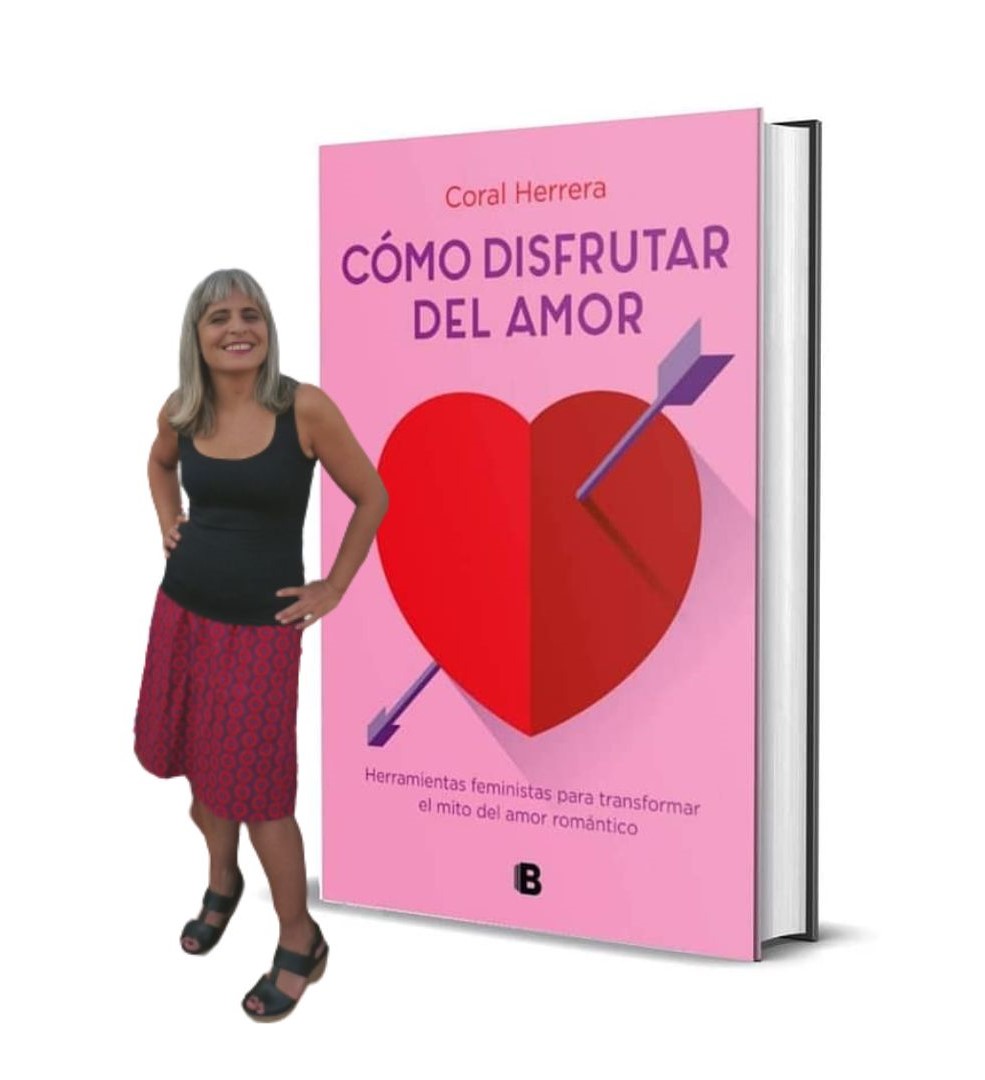
Table of Contents
Introduction
- The Love Thermometer
- The Unlove Thermometer
- Tools for Enjoying Infatuation
- Tools for Demystifying Happy Couples
- Tools for Demystifying the Romantic Myth, Princesses, and Prince Charmings
- Tools for Enjoying Sex More
- Tools for Addressing Self-Deception
- Tools for Emotion Self-Regulation
- Tools for Overcoming Self-Sabotage and Abuse
- Tools for Dealing with Fear and Jealousy
- Tools for Addressing Romantic Masochism and Victim Mentality
- Tools for Working on Self-Esteem
- Tools for Overcoming Emotional Dependency
- Tools for Dealing with Power Struggles in a Relationship
- Tools for an Ethical Approach to Love
- Tools for Managing Anger and Pain
- Tools for Separating with Love
- Tools for Going Through Grief
- Tools for Committing to Yourself
- Tools for Being Practical and Realistic
- Tools for Creating Your Own Violet Glasses
- Tools for Nurturing Love
- Tools for Expanding and Multiplying Love
- Tools for Applying Theory into Practice

INTRODUCTION
Romantic love is one of the most beautiful experiences that humans go through, but also one of the most painful. Millions of people dedicate tons of time, energy, and resources to finding their soulmate, believing that doing so will transform their lives, save them, solve their problems, and bring immense happiness.
The romantic dream often leads us to suffer greatly, as finding our "better half" is very challenging, and even when we find them, we often end up disappointed because relationships are not as beautiful, perfect, and marvelous as portrayed in fairy tales and movies.
The romantic myth is a collective illusion, a shared mirage across nearly all cultures worldwide, laden with false promises. We dream of a romantic paradise, yet in reality, we spend more time suffering from love than truly enjoying it. I believe that women suffer more from love than men do, because from a young age, we are bombarded with the idea that love will save us.
We are taught to place love and caring at the center of our lives. Our love for a man often puts many of us in a submissive position, and unconsciously, we assume traditional feminine roles that create dependency on men.
This contradiction causes us great suffering: we want to be free and autonomous, to build equal, healthy, and beautiful relationships, to enjoy life with or without a partner, and to reconcile our feminist beliefs with our feelings and ways of relating.
But it's quite difficult. As we start working to enjoy our relationship with ourselves, love, and life more, the main challenge we face is putting theory into practice. We receive no emotional or sentimental education that helps us learn to love ourselves properly: the only references we have to create our emotional world are the adult romantic relationships in our closest family and social circles, and the novels, movies, series, and songs of our culture.
We need tools that help us love and treat ourselves well, to resolve conflicts without violence, to identify and express our emotions so they don't overwhelm us and harm anyone. In the current educational and parenting system, all we are taught is how to suppress them, differently based on whether we are girls or boys: it's clear to us from a young age that girls shouldn't get angry, and boys shouldn't cry.
Our emotional education is based on denying and repressing our emotions, which is why when we experience intense emotional stories, we become unwell: our mental health deteriorates as we suffer.
And that's when we seek help from professionals: when we are already broken, both externally and internally. In reality, these professionals should be able to help us from the beginning, to understand human relationships, and to work to make them less conflicted and painful.
Until very recently, within feminism, it was assumed that romantic love was a trap for women, and that in order to be free, we had to give up falling in love with a man. As I devoured feminist books for my thesis, I thought, it can't be true, there must be a way to reclaim love, redefine it, transform it, reinvent it.
There must be a way to liberate love from sexism: and there is.
Love is in a constant state of construction, so we can keep the best aspects of our culture of love and get creative in imagining other ways of loving and caring for ourselves.
Since the romantic is political, the work is not only personal but also collective, and I feel that there are more and more people eager to transform love in order to enjoy it.
I believe that more and more of us are working on a love revolution that includes not only romantic love but also caring and networks of affection that support and accompany us on the journey of life.
The common goal of this emotional revolution is to love ourselves well, to love each other more and better, to free love from all its sexist baggage and patriarchal structure, and to learn to build beautiful, healthy, and egalitarian relationships.
Many women are coming together to imagine other ways of loving ourselves beyond the patriarchal romantic model, and to create our own love utopias that serve as an alternative to the romantic hegemony of sadomasochism and the glorification of suffering.
We are working to relate to each other and organize ourselves differently, so that our relationships are free from violence and exploitation, so that we can love without suffering and without causing suffering to others.
We are engaged in an emotional and loving revolution that is both personal and political.
I am writing this book convinced that we can suffer less and enjoy love more. Throughout my research on romantic love, I have found that there is no magical formula for happiness in a romantic relationship, but we can build our own tools to strive for a good quality of life, to suffer as little as possible, and to transform love in a way that reaches all of us.
Three years ago, I founded the Love Laboratory, a research group composed of women of different ages and countries dedicated to studying romantic love and working to find a way to love ourselves without suffering or causing suffering to others.
We are a bit like the peasants of love: we sow seeds and we are already reaping the fruits of the work we are doing together. Our common goal is to enjoy sex, love, and life more, and our mottos are: the romantic is political, and other ways of loving are possible.
We analyze patriarchal romanticism to identify and dismantle the myths with which we are seduced, and to understand how we have internalized all gender mandates through love. We work on self-awareness through loving self-criticism: we want to know ourselves better, work on our patriarchies, and learn to love ourselves and others well.
In the Love Laboratory, we have a toolbox that we feed with the lessons we have accumulated since we fell in love for the first time to those we are acquiring in the present.
We also nourish our toolbox with good advice. Advice that we give to our dearest friends to seek happiness, take better care of themselves, leave relationships in which they are not happy, and stop wasting time with guys who don't know how to enjoy love...
This advice is based on the affection we feel for them and on common sense, which we all have since we were old enough to reason. It's simply a matter of applying these pieces of advice to ourselves, listening to ourselves with love, and getting to work to help ourselves.
We also feed the toolbox with tricks, strategies, formulas that have worked for us to deal with mourning, jealousy, fear, guilt, suffering, emotional dependency, ego, self-esteem, assertiveness, empowerment, self-care, the machismo violence we have suffered, and the way we have worked on all of this to be able to enjoy love.
Together, we generate resources and tools for self-critical analysis, both individually and collectively, and to put into practice our own love utopia.
In this book, I share some of the tools we work with in the Love Laboratory. I feel that since I published my doctoral thesis until now, there are more and more people looking for ways to stop suffering for love and to free themselves from the patriarchies that inhabit us. It's not easy because we have very few references of people who enjoy love.
Most of our heroines and heroes are great sufferers, and the love stories they offer us are based on the sadomasochism inherited from Christian culture.
So, we have to undertake a cultural revolution to imagine different heroines, heroes, plots, and other happy endings. We need to invent new models of love and rediscover the diversity that is hidden behind the hegemonic model of the heterosexual couple that forms a happy family.
It's a huge task that we have to do together in order to experience love on a much broader scale, without limiting it to romantic partnerships.
We need to explore new ways of loving each other, new ways of relating and enjoying life: as couples, in groups, and on our own. We need to pool all our energies, our love, our imagination, our creativity, and our knowledge to carry out the revolution of love, affection, and care.
We want to learn to love ourselves more and better, and the question I get asked the most in my conferences, workshops, and online courses is: how? So, in this book, I wanted to share my working methodology, which is quite simple.
It starts from the idea that most of our problems are not personal but collective problems. Therefore, we need to find collective solutions.
Since love causes us so much suffering, it is necessary to work on it to transform it and free it from machismo and patriarchy. Women have always talked a lot about love, patriarchy, the sexual division of labor and life, emotions, desire, and eroticism, relationships between men and women, but until recently, it wasn't considered a political issue.
Today, thanks to feminism, we have come to understand that suffering for love is not a matter of bad luck but a social and political issue: what happens to one of us, happens to all of us.
Romantic love is a gigantic social and cultural construct that changes according to historical periods and geographical areas. We learn to love in a capitalist and patriarchal organizational system, inherit beliefs and taboos, assume norms and prohibitions, reproduce customs, and when we have internalized all the patriarchal romanticism, we reproduce it and pass it on to the next generations.
The first step to start working is to analyze how we learn to love, focusing on the difference between men and women. We are educated differently, have different expectations about romantic love, and that's why it's so difficult for us to love each other well.
Furthermore, we live in a system that takes advantage of half of the human population: our relationships are exploitative.
Understanding why women voluntarily subject ourselves to these relationships of domination and submission is helping us better understand our love culture and dismantle all the myths that seduce us to place love at the center of our lives.
The second step is to do exercises and generate tools that serve to free love from machismo and free ourselves from the patriarchies that inhabit us. In order to put theory into practice, it is very important to become aware of how we internalize patriarchal romanticism.
Once you identify everything that hurts you, doesn't help you, or you don't like, it becomes easier to design a strategy to work on everything you want to change.
The third step is to put the strategy into practice: it is very important to have confidence in oneself and understand that no woman is doomed to suffer for love, that everything can be worked on, that relationships can be enjoyed as well as singleness, that we can experience love differently, avoid painful relationships, and exit violent relationships.
To achieve this, it is necessary to work extensively on personal self-esteem and collective empowerment. In the Love Laboratory, we have always been accompanied by the battle cry of "Yes, it is possible!"
Love is an energy that moves the world, and there is no need to limit it to romantic relationships. The more love we have in our lives, the happier we will be, and the more diverse our loves and larger our affections, the easier and more beautiful life will be for each and every one of us.
A romantic partner cannot be the sole source of love: it's just one relationship in the network of affections we build from childhood to death.
The tools we work with are primarily strategies that we design based on the questions we generate in our research processes. These strategies help us look at ourselves from a different perspective, see ourselves from the outside, give ourselves good advice, and take care of ourselves and each other.
These strategies sometimes work and sometimes they don't, which is why we need to keep experimenting, choosing, and discarding. It's an exciting research process, and as we share it with more women, we nourish ourselves with good advice, our own experiences, and the experiences of others. Our comrades' stories help us understand what we're going through and build our own life narrative.
One of the key aspects of our work is to prioritize enjoyment, save ourselves from suffering, avoid problems, manage our emotions, and be practical in facing reality. The idea is not to waste time and energy searching for the ideal person or insisting on making a relationship work that isn't and won't work.
If we are together, it's to enjoy, and if we're not enjoying, then we're certainly better off apart.
With this focus on enjoyment, it becomes easier to take care of ourselves, make good decisions, and free ourselves from the need to be loved. We should spare as many tears as possible.
Suffering makes us look unattractive and ages us. It's the exact opposite of what happens when we fall in love and are happy: we appear radiant, our hair, gaze, and skin shine, and everyone notices our nights of love.
When we suffer, on the other hand, our dark circles, bags, and wrinkles become more pronounced, our smile fades, our gaze becomes dull, and our skin dries out. We're always more tired because suffering drains our energy and joy of living.
Suffering is not free: besides aging us, it damages us both internally and externally. Our mental and emotional health is harmed, as is our physical health. We become love addicts, isolate ourselves from others, and have such a strong need to be loved that we're willing to beg or demand love on our knees.
As we are tired of suffering, we need to find a way to reclaim our right to pleasure, well-being, and happiness. What we want is to put all our learnings into practice and share them so that everyone can use them in their personal journey.
The Love Laboratory is a space for collective knowledge building where each person contributes with their questions, readings, experiences, both from their past and present. This is how we are constructing a complete methodology that allows us to ground our dreams in reality, while still taking great care of ourselves.
Each person builds their own romantic utopia, but there is a foundation without which it's not possible to enjoy love: for a relationship to be beautiful and healthy, it must be free, equal, based on mutual respect, kindness, support, complicity, and companionship. With these basic ingredients, each individual can construct their own model of love and design strategies to shape it and bring it to life.
All our work is based on self-awareness and self-critique in the realm of love, where we identify what we don't like, what we could improve, or what we could avoid to be better.
Then, we think about how to eliminate those patterns, how to break free from cycles of pain in our relationships, how to end power struggles in couples, how to work on jealousy, guilt, fears, masochism, victimhood, Ego, self-esteem, and power.
In this book, I share the work I've done throughout my life, as well as some of what we've been doing in recent years at the Love Laboratory and in the School of Love. You'll find tools to create your own violet lenses, to know if you're being loved properly, to end the war against yourself, to learn how to take care of yourself and love yourself properly.
You'll also find keys to working through grief, to enjoying sex more, to using your power without harming others, to being more realistic, to avoiding victimhood, to not subjugating or dominating others, to resolving your problems through communication, empathy, and assertiveness.
There's a lot of work ahead of us, but we must have fun in order to enjoy the process. Because it has no end; it's a lifelong journey. It's an exciting challenge: it's about nothing more and nothing less than separating love from suffering, and uniting love with pleasure and enjoyment.
It's about learning to relate and organize ourselves in a different way, finding ways to overcome hatred, conquer loneliness, and unite to build a better world where love reaches everyone.
This revolution of care, affection, and love must be pleasurable: if we want to stop suffering, we need to enjoy all this work. My advice is always that it's more enjoyable to work surrounded by brave women and men who are on the same path as us.
Because the joy of living and the desire to enjoy are contagious: the more we are, the faster we will progress in the transformation we need.
I hope you enjoy these tools, find them useful for your journey, and that my tremendous desire to reinvent and enjoy love is contagious as you read this book.
Coral Herrera Gómez
You can find "How to enjoy love" in Amazon:

